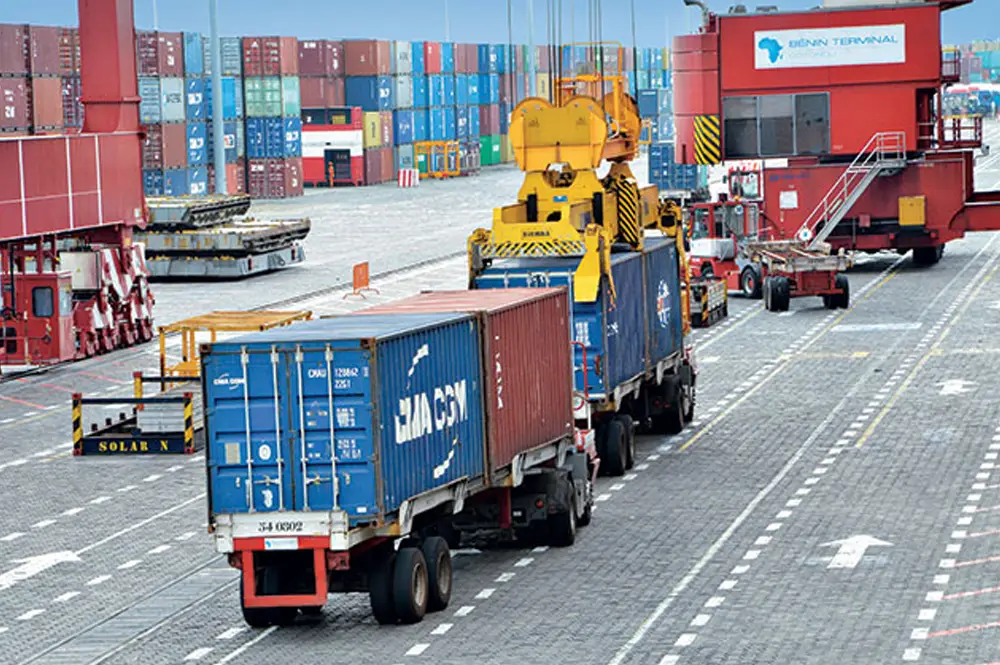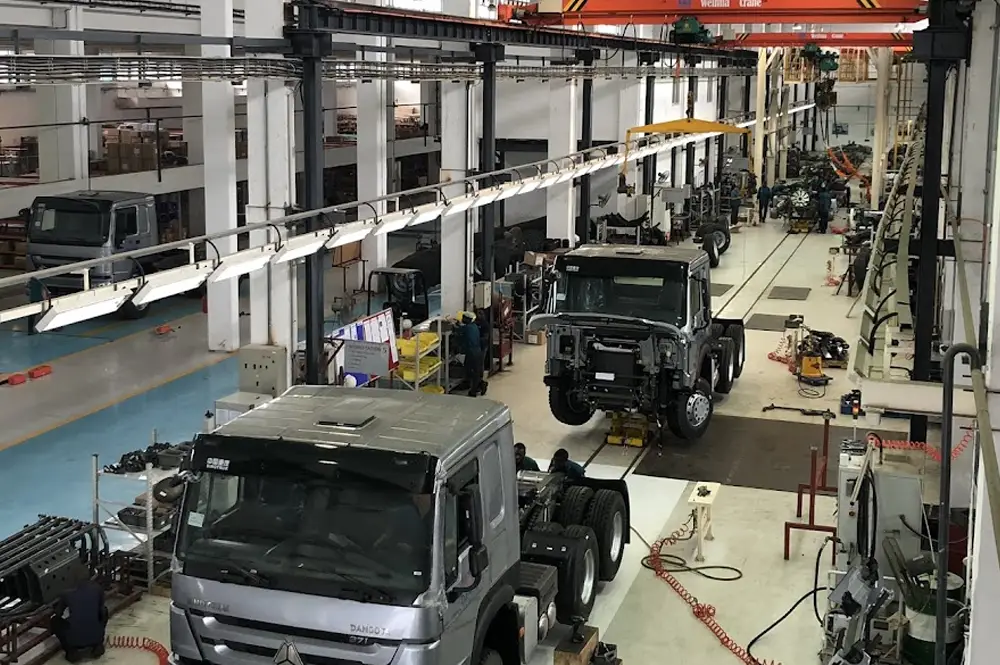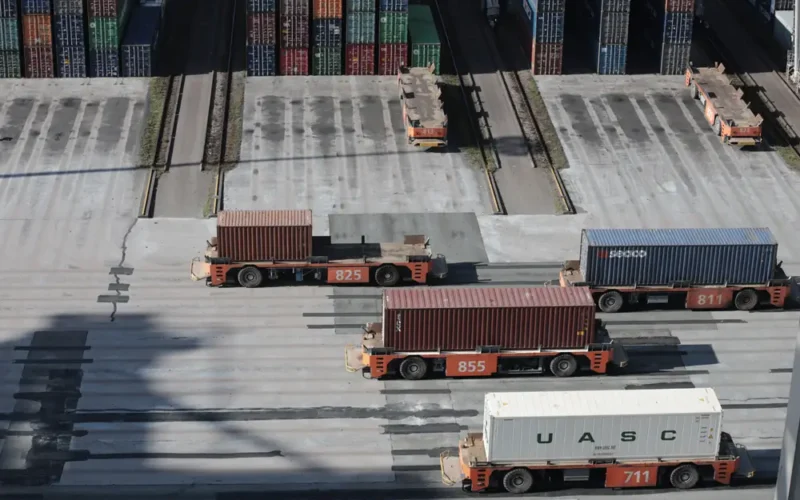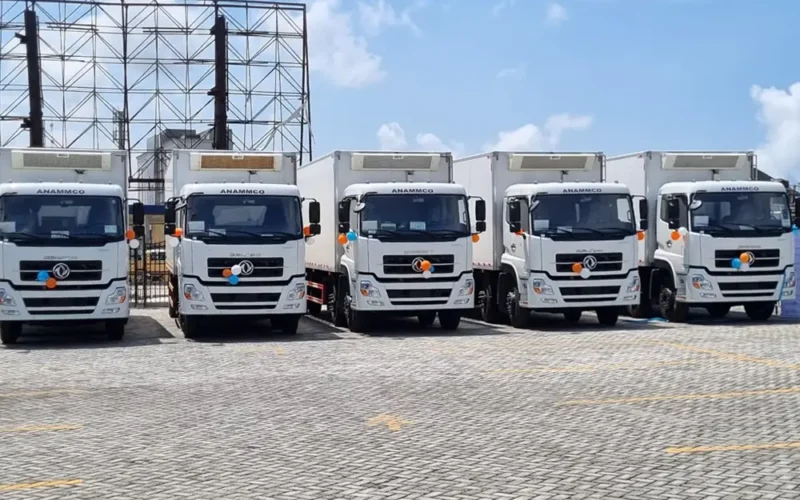Nigeria, often referred to as the “Giant of Africa,” stands as the economic powerhouse of Africa. Its massive population offers the promise of a demographic dividend, with economic growth being driven by population and consumption. What sets Nigeria apart is its young and aspiring population, which presents a clear demographic advantage.
At the heart of this economic growth lies the logistics industry, a critical sector that ensures the smooth movement of goods and services within the country. In this article, we will explore the remarkable growth of the logistics industry in Nigeria and delve into the pivotal role played by the auto industry in driving its success.
At the heart of this economic growth lies the logistics industry, a critical sector that ensures the smooth movement of goods and services within the country
The Logistics Industry in Nigeria

The logistics industry is the backbone of any economy, facilitating the movement of goods and services from manufacturers to consumers. In Nigeria, this sector has experienced significant growth over the past few years, driven by several factors:
Economic Expansion: Nigeria’s growing middle class and increasing urbanization have led to a surge in consumer demand. This has resulted in a need for efficient logistics solutions and trucks to transport goods from production hubs to urban centers.
E-commerce Boom: The rise of e-commerce platforms has revolutionized the retail sector in Nigeria. As more Nigerians turn to online shopping, there is an increased demand for last-mile delivery services, warehousing, and transportation.
Agricultural Potential: Agriculture is a significant contributor to Nigeria’s economy. The logistics industry plays a pivotal role in connecting farmers with markets, ensuring that agricultural produce reaches consumers and export destinations efficiently.
Infrastructure Development: Despite challenges, Nigeria has been making efforts to improve its transportation infrastructure, such as roads, ports, and railways, which has positively impacted the logistics sector.
Coche Ride stands as a prime example of innovation and efficiency. By leveraging the network of trucks – selected healthy and fit trucks and an experienced hand in accessories in the auto industry, adapting to the evolving logistics landscape
The Role of the Auto Industry

The auto industry in Nigeria is closely intertwined with the logistics sector. It has the potential to play a pivotal role in Nigeria’s industrial development. Here’s how the auto industry contributes to the growth of logistics:
Fleet Expansion: Logistics companies heavily rely on vehicles for the transportation of goods. The auto industry provides a steady supply of trucks, vans, and other vehicles essential for logistics operations.
Customization for Logistics: Nigerian auto manufacturers and importers often customize vehicles to suit the specific needs of logistics companies. This includes modifying trucks and vans to optimize cargo space, improve fuel efficiency, and enhance safety.
Maintenance and Repairs: A well-functioning logistics fleet requires regular maintenance and timely repairs. The auto industry supports logistics companies by providing spare parts, maintenance services, and skilled technicians.
Innovation: The auto industry is constantly evolving, introducing new technologies and features that can enhance the efficiency and safety of logistics operations. This includes advancements in vehicle tracking systems, fuel-efficient engines, and safety features.
Challenges and Opportunities

While the synergy between the logistics and auto industries in Nigeria is evident, several challenges need to be addressed to ensure sustained growth:
Infrastructure Deficiencies: Nigeria’s inadequate road network and congested ports can lead to delays and increased operational costs for logistics companies. Continued investment in infrastructure is crucial.
Regulatory Issues: Ambiguous and inconsistent regulations can pose challenges to logistics and auto companies. A more transparent and stable regulatory environment is needed.
Environmental Concerns: As the world shifts towards sustainable practices, both industries should explore eco-friendly solutions, such as electric vehicles and renewable energy sources.
Skilled Workforce: To keep pace with technological advancements, there is a need for a skilled workforce in both industries. Investing in training and development is essential.
Conclusion
The logistics and auto industries in Nigeria are intrinsically linked, with each playing a vital role in the growth and development of the other. As Nigeria continues on its path of economic expansion, the synergy between these two sectors will become even more critical. By addressing challenges and seizing opportunities, Nigeria can harness the full potential of these industries, driving economic growth and improving the quality of life for its citizens.
In this dynamic landscape, Coche Ride stands as a prime example of innovation and efficiency. By leveraging the network of trucks—selected healthy and fit trucks—and an experienced hand in accessories in the auto industry, adapting to the evolving logistics landscape, Coche Ride exemplifies how companies in Nigeria can thrive. With a commitment to sustainability, cutting-edge technology, and a skilled workforce, Coche Ride not only contributes to the growth of the logistics sector but also sets a precedent for excellence.
The future of Nigeria’s logistics and auto industries is undoubtedly bright, promising a more efficient and networked nation where companies like Coche Ride continue to lead the way toward a prosperous and sustainable future.








